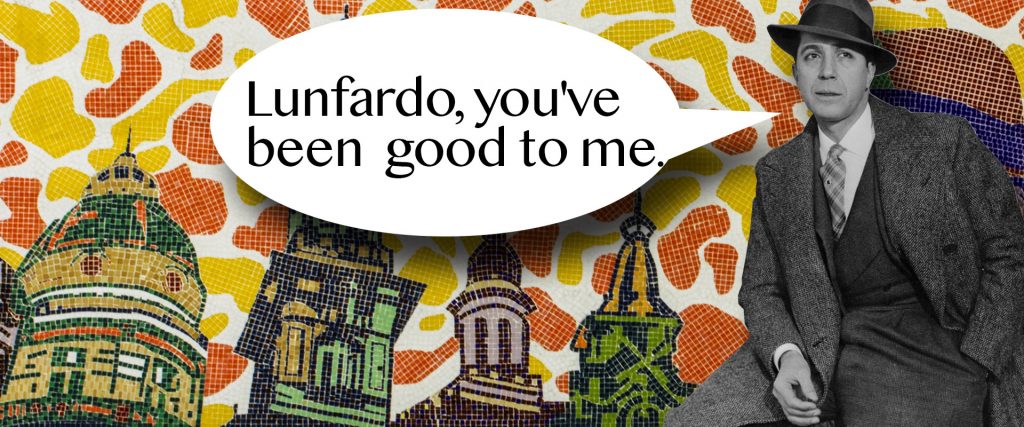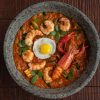Can argentine wine labels help understand their homeland´s slang? Every country has its own argot: in English, different variations of regional and cultural slang appear so commonly that you barely notice them but in Argentina we have Lunfardo: a strange mixture of Spanish and the many different tongues you find thrown together in a thriving port city, with Italian and French prominent, reflecting the lives and wit of the people who live there.
Originally the language of the underclass, some Lunfardo words have earned a treasured place in Argentinian hearts and are regularly used to express important things: Argentinians laburan when they ought to be trabajando, and celebrate a yeite when a deal is done in the expectation that it’ll earn them a few morlacos (money). Some of these wonderful terms have found their way onto argentine wine labels. Here we share a few you might see in your local wine shop:

Argentine wine labels to understand lunfardo
Chamuyo Malbec 2019.
Few words better reflect Argentinians’ love of chatter and wordplay: when someone chamuyas they’re being both talkative and seductive, while a chamuyo might be a tall tale, lie or well-orchestrated hoax. The dictionary definition is: ‘Suggestive form of speech designed to seduce the other party.’ Mendoza Vineyard chose this latter definition to describe the spirit of its Malbec.
Yunta Malbec 2018.
Deriving from the Latin iunctus, yunta is the Spanish term for yoke but in Lunfardo it’s used to describe a duo, occasionally in a mocking or malicious manner. Both these definitions are relevant to this wine, which is the result of a partnership between two oenologists, Juan Pablo Michelini and Luis Miano, who use grapes from Gulatallary and Perdriel to produce what is indeed an excellent yunta.
Qué Guapo Malbec 2017.
Using the aesthetic of the Caminito in La Boca, where buildings in corrugated iron are painted in vivid colours, this label has a slummy air to reflect the Lunfardo in its name. While guapo means handsome, and well-turned out in Spanish, in Lunfardo it is used to refer to someone hardened, resilient and good in a fight. A subtle play on words that employs the best of both meanings, overall this Malbec with touches of Bonarda and Syrah probably best suits the former usage.
Maula Malbec 2018.
About to turn 100 after it was first coined in the tango ‘Mano a mano’ by Celedonio Flores, maula is used to describe someone who dishonourably squanders their lover’s money. The full verse reads: ‘you spend the fool’s morlacos in the market the way a cat plays with the poor mouse.’ Maula is derived from maullar, or meow, so the cat imagery is doubly important: in the tango and also in this wine from Bodega Margot on whose label struts a sly-looking feline.
Yeta Tannat Malbec 2017.
Some people bring good luck, and some are yetas, which means bad luck in Lunfardo. The fun part is that it can be used as both noun and adjective, yeta being something that one is, and that also spreads to other people. Like all superstitions, the important thing is to believe in it wholeheartedly. The way you drink this Tannat-Malbec blend from Bodega Domingo Molina, which is made in Salta.
Piantao 2015.
Whatever language you speak, the words used to describe madness tend to be pretty memorable. Especially the affectionate ones like piantao. In fact, one of Astor Piazzolla’s most famous tangos, ‘Balada para un loco’ (Ballad for a Madman) contains the line: ‘I know I’m piantao, piantao, piantao’. And when it comes to going mad, this blend of 70% Cabernet Franc, 20% Malbec and 10% Merlot from Gualtallary made by Zorzal Wine is liable to blow your mind.
Pispi 2018.
Strictly speaking, pispi is a shortened form of pizpireta, originally written in Spanish with a ‘z’. Some tangos use it to describe a form of mental acuity and cunning when solving problems or getting something you want: ‘The waiter’s pizpireta’, or ‘They’re quite pizpireta’. Made by Mosquita Muerta Wines, a winery that built its profile on brands inspired by popular parlance, this Malbec -based blend is an excellent reflection of Argentinians’ occasionally overwhelming love of words.
And as a bonus, at no extra cost, we share an argentine wine label inspired by a piece of Mendoza slang:
Los Chocos Malbec 2018.
Of uncertain origin but used in Chile, the Cuyo region and southern Bolivia, Choco means both mongrel and is a catch-all term for dogs in general. It is gendered, you have chocos and chocas, and a popular Cuyo folk song features the line: ‘If only the chocos had barked.’ Made with grapes from Gualtallary, Viña Los Chocos pays tribute to scruffy vineyard hounds with this Malbec.


